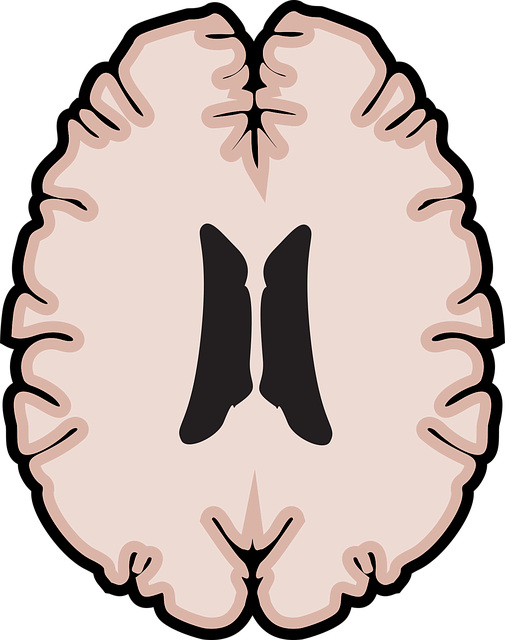Denver German Speaking Therapy provides comprehensive crisis intervention services, combining immediate support with long-term resilience-building strategies. Through compassionate practices, structured workshops, and risk assessments, therapists help clients manage distress, develop positive thinking patterns, and enhance overall mental well-being. By bridging cultural gaps and empowering individuals through self-awareness exercises, mindfulness, and community outreach, this holistic approach ensures lasting recovery and emotional stability.
In times of crisis, effective intervention can make a world of difference. This article explores crucial strategies for navigating mental health crises, emphasizing the vital role played by specialized services like Denver German Speaking Therapy. From understanding the cornerstone principles of crisis intervention to practical tools and post-crisis care, we delve into essential guidance for both professionals and those seeking support. Key topics include identifying warning signs early and fostering recovery through nurturing resilience.
- Understanding Crisis Intervention: A Cornerstone of Mental Health Support
- The Role of Denver German Speaking Therapy in Critical Situations
- Identifying Warning Signs: Early Detection for Effective Interventions
- Practical Strategies: Tools and Techniques for Crisis Management
- Post-Crisis Care and Recovery: Nurturing Resilience and Well-being
Understanding Crisis Intervention: A Cornerstone of Mental Health Support

Crisis intervention strategies are a cornerstone of mental health support, offering immediate and targeted assistance during moments of intense distress. These interventions aim to stabilize individuals, provide a sense of safety, and help them regain control in situations where emotions run high or circumstances seem overwhelming. Whether it’s a sudden loss, traumatic event, or severe emotional crisis, Denver German speaking therapy professionals play a vital role in guiding people through these challenging times.
By integrating compassion cultivation practices into their approach, therapists foster an environment of warmth and understanding, encouraging clients to develop positive thinking patterns and effective stress management skills. Moreover, participating in structured workshops and programs focused on resilience-building can empower individuals to navigate future crises more adeptly. These evidence-based methods are designed to not only address immediate needs but also equip individuals with long-lasting coping strategies, ultimately enhancing their overall mental well-being.
The Role of Denver German Speaking Therapy in Critical Situations

In critical situations, Denver German Speaking Therapy plays a pivotal role by offering specialized support tailored to individuals facing mental health crises. With the ability to communicate in both English and German, therapists provide a unique service that bridges cultural gaps, ensuring a deeper understanding of clients’ backgrounds and perspectives. This dual-language capability is particularly beneficial for those who might face barriers due to language differences, allowing them to openly discuss their struggles without hesitation.
The therapy approach focuses on immediate intervention and long-term recovery, addressing not only the symptoms but also the underlying causes of distress. By integrating mental illness stigma reduction efforts into sessions, therapists foster an environment of trust and acceptance, encouraging clients to share their experiences without fear of judgment. This holistic strategy promotes effective stress management and contributes to enhancing mental wellness, ultimately empowering individuals to navigate challenging situations with resilience and hope.
Identifying Warning Signs: Early Detection for Effective Interventions

Recognizing warning signs is a cornerstone of effective crisis intervention. Just as Denver German-speaking therapy practitioners identify distinct linguistic and cultural nuances in their clients’ narratives, so too must they learn to decipher subtle indicators of distress. These can manifest as changes in communication style, mood swings, or increased isolation – behaviors that might initially seem mundane but signal deeper issues beneath the surface. Early detection is key; it empowers mental health professionals to intervene proactively before crises escalate.
By integrating a robust risk assessment into their practice, Denver German-speaking therapists can gauge an individual’s vulnerability and tailor interventions accordingly. This proactive approach not only helps mitigate risks associated with depression prevention and anxiety relief but also fosters more personalized, effective support. Through ongoing monitoring and open dialogue, practitioners empower individuals to recognize and manage their emotional landscapes, ultimately contributing to lasting well-being.
Practical Strategies: Tools and Techniques for Crisis Management

In the realm of crisis intervention, efficient management demands a strategic approach, and Denver German speaking therapy offers valuable tools to navigate turbulent times. Practical strategies are pivotal in ensuring individuals affected by crises receive timely and effective support. One powerful technique is facilitating self-awareness exercises, enabling clients to identify triggers and develop coping mechanisms tailored to their unique experiences. These exercises empower individuals to take charge of their emotional well-being during challenging situations.
Additionally, integrating self-care practices into crisis management routines is essential. Encouraging regular self-care activities, such as mindfulness meditation or physical exercise, allows individuals to build resilience and maintain a sense of equilibrium. Community outreach program implementation also plays a significant role, fostering connections and support networks that can provide ongoing assistance beyond immediate crisis intervention. These strategies collectively contribute to creating a robust framework for effective crisis management, catering to the diverse needs of individuals seeking guidance in times of distress.
Post-Crisis Care and Recovery: Nurturing Resilience and Well-being

After an acute crisis has passed, the focus shifts to post-crisis care and recovery, aiming to nurture resilience and promote well-being. This crucial phase involves supporting individuals in processing their experiences, managing emotions, and rebuilding a sense of stability. Denver German speaking therapy can play a pivotal role here by offering specialized support tailored to cultural needs and language preferences.
Effective post-crisis interventions encourage clients to develop self-care routines for better mental health, which is enhanced through the production of engaging mental wellness podcast series. Additionally, risk management planning for mental health professionals becomes essential in this context, ensuring that practitioners can safely and effectively guide their clients towards recovery while also prioritizing their own mental wellness.
In conclusion, crisis intervention strategies are a vital component of mental health support, as highlighted by the comprehensive discussion on Denver German Speaking Therapy’s role in critical situations. By understanding crisis intervention and identifying warning signs early, we can effectively manage crises using practical tools and techniques. Post-crisis care and recovery are crucial for fostering resilience and well-being, emphasizing the need for continuous support and resources in navigating life’s challenges.














